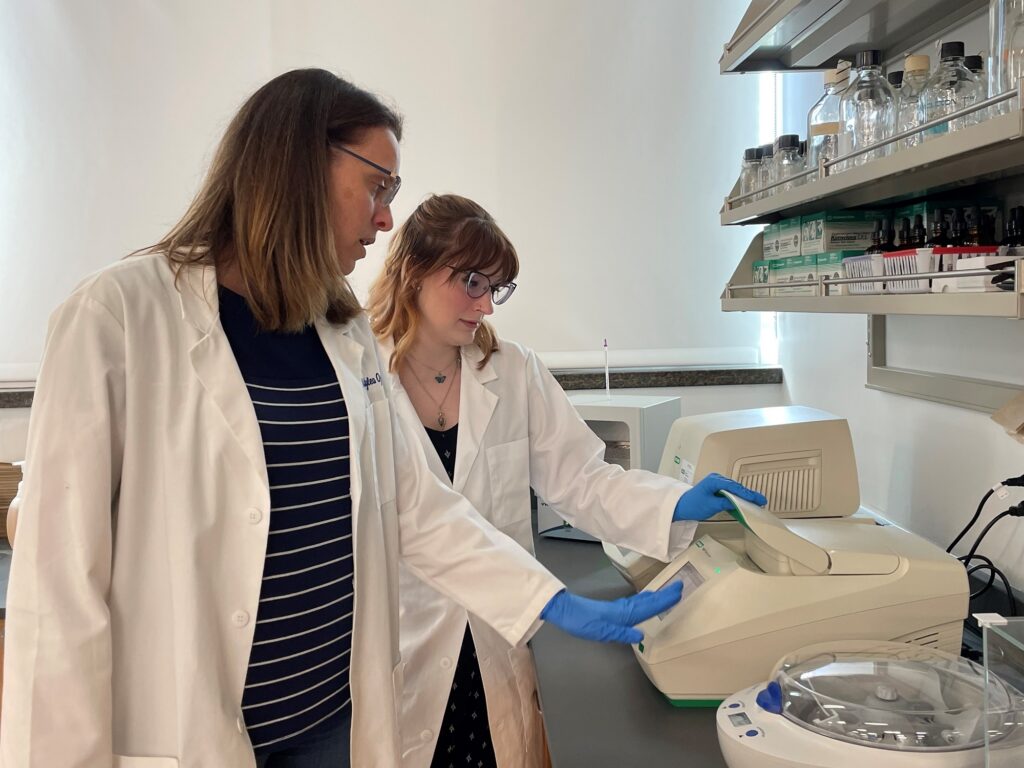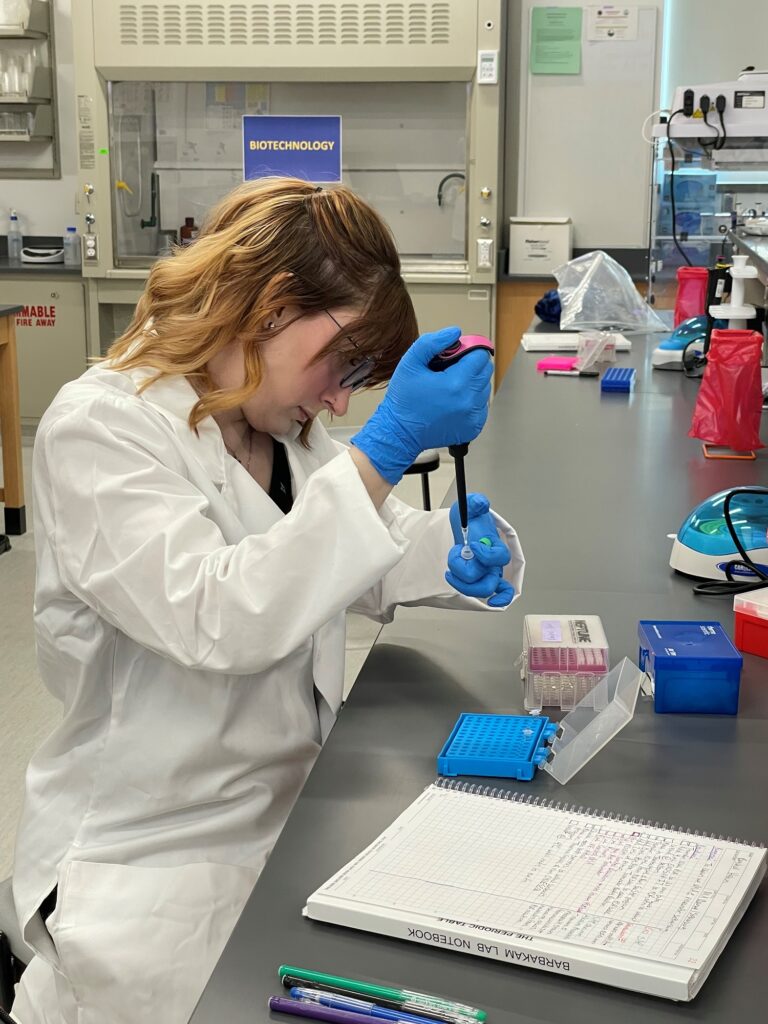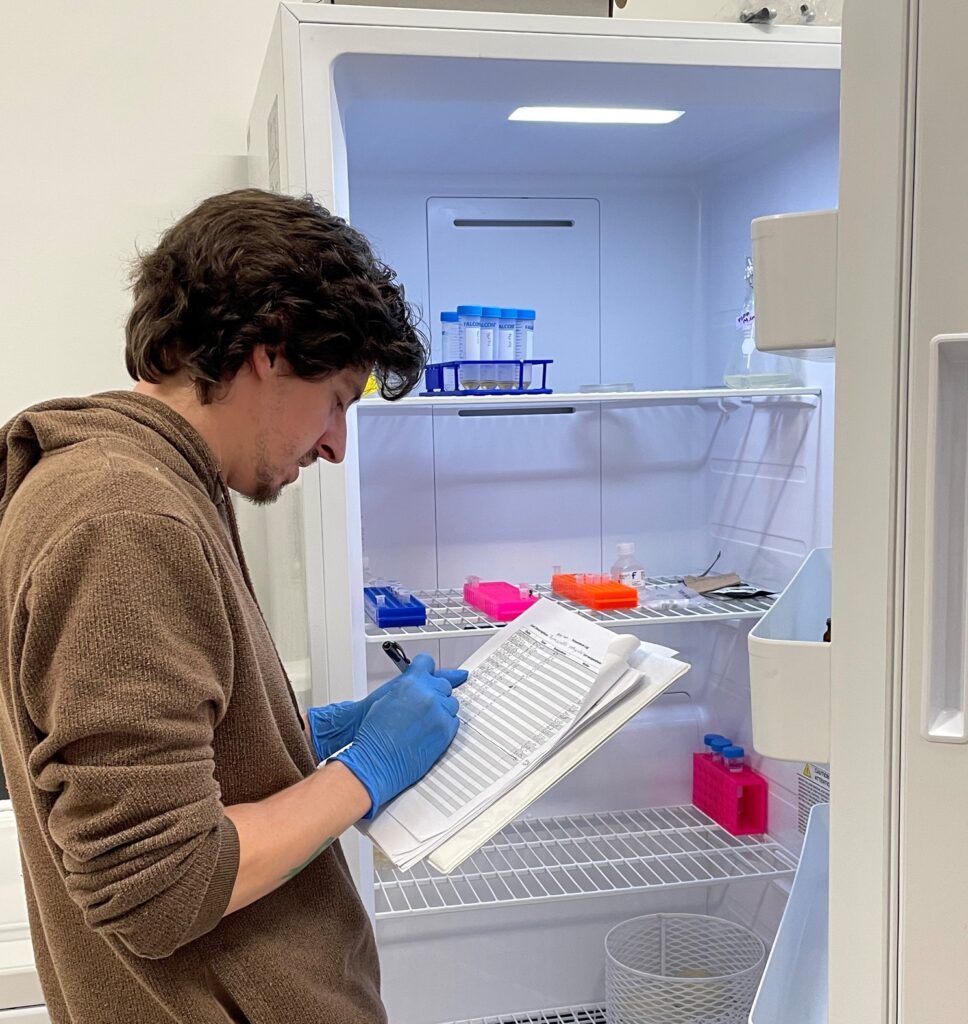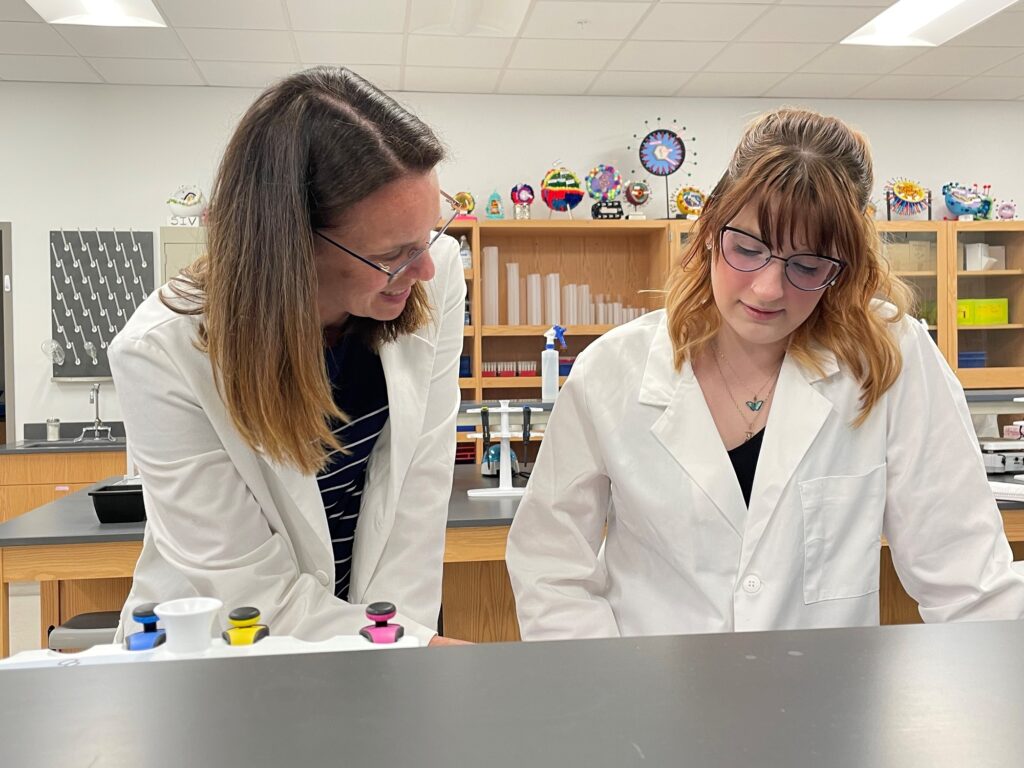
In a short time, Virginia Western’s Biotechnology Program has established a reputation as an accessible place for students to start from any point of their science journey and get thorough, hands-on experience with equipment and techniques required to work as lab technicians. But for those who decide that yes, this is the field for them, how do they prove they have the technical skills for this specialized job sector?
Enter the BACE credential.
Biotility at the University of Florida has partnered with the bioscience industry to develop the Biotechnology Aptitude and Competency Exam (BACE), which assesses core skills and knowledge sets defined by the industry. Launched in 2012, this industry-recognized credential tells potential employers that an applicant can seamlessly enter a bioscience workplace and is prepared to be quickly trained on company-specific protocols. To date, around 6,500 people have earned this credential nationally.
Last summer, Virginia Western Community College received approval to be a BACE testing site. BACE is administered in 32 states, with it being officially recognized as an industry-level credential at the state level in 18 of those, including Virginia, where it was approved in fall 2024.
Twelve Biotechnology students took the BACE on Saturday, Feb. 22, the first time it has been administered at the College. Of these, 11 successfully earned the BACE credential.
The BACE credential certifies students’ overall proficiency in bioscience skills and knowledge necessary for entry-level technician positions; thus, it validates lab skills typical of entry-level lab tech and research associate positions.
While this will not only make these students more attractive job candidates, there are benefits for those who plan to extend their education. “If a student chooses to transfer to a four-year institution, the BACE credential will make the students better prepared and more competitive for undergraduate research and internship opportunities,” said Dr. Kristylea Ojeda, Virginia Western faculty member in Biotechnology.

Virginia Western has built BACE preparation into biotech-specific courses, including BIO 250: Biotechnology Research Methods and Skills; BIO 251: Protein Applications in Biotechnology; BIO 252: Nucleic Acid Methods; and BIO 253: Biotechnology Concepts. BIO 250 and BIO 253 are first-year classes, while BIO 251 and BIO 252 are second-year courses that help to reinforce and expand upon concepts in the BACE. Students also took a BACE prep course this semester as a refresher, including required in-person lab times.
One of those earning the BACE credential was Raychel Hahn, a student pursuing the Associate of Science: Biotechnology major. “All of the Biotechnology classes have been incredibly helpful, especially Dr. Ojeda’s BIO-250/253 classes — 250 teaches you all of the hands-on skills that you have to demonstrate for the exam and then 253 is the theory behind why those things work,” Hahn said, who intends to enter the workforce after receiving the A.S. degree.
The two-year Associate of Science: Biotechnology major program, headed by Dr. Heather Lindberg, began in August 2023, so the first cohort of these students will be graduating in May. Virginia Western also offers a one-year Biotechnology Career Studies Certificate, and those students are also eligible to sit for the BACE.
“Professional development is essential to the growth of Roanoke’s burgeoning innovation ecosystem. The valuable work done by these students in obtaining their BACE credentials ensures the next generation of leaders is doing its part to grow that ecosystem,” said Marc Nelson, Director of the Department of Economic Development for the City of Roanoke.

In early 2023, the Virginia Department of Housing and Community Development approved the release of $15.7 million in funds awarded to the City of Roanoke to create 40,000 square feet of shared lab space at 1030 S. Jefferson Street in Roanoke. Virginia Western Community College is a partner in the project with the City of Roanoke, Carilion Clinic, Virginia Tech Corporate Research Center, the Roanoke Blacksburg Innovation Alliance and Fralin Biomedical Research Institute at VTC.
“It is exciting to see the foundational work of the Roanoke Biotech Project, a multiple organizational project that has focused on building the biotechnology sector in Roanoke, translate into real success, with students receiving training for the Biotechnology Aptitude and Competency Exam (BACE) for the first time,” said Erin Burcham, CEO of the Roanoke Blacksburg Innovation Alliance. “We’re thrilled that 11 students who sat for the exam passed, marking a significant step forward for biotechnology education in our community. As part of a regional effort to scale up the biotech cluster, these students represent the growing talent pipeline.”
Amy White, Virginia Western Dean of STEM and Workforce Solutions, sees more good things to come. “Congratulations to these students, and to their instructors! It has been a career highlight to watch this program evolve from a mere idea into a reality that is contributing to the growth of this region,” White said. “The implementation of the BACE and the success of the students speak to the hard work and commitment of so many partners. Additionally, this project is a testament to the collaborative nature of our region, and Virginia Western is proud to contribute to this ecosystem.”
Virginia Western students feel prepared and supported to become part of the biotech sector. “I’m really happy to be enrolled in the Biotech program and very glad a professor recommended I check it out,” Hahn said. “I’m also really thankful for Dr. Ojeda and Dr. Lindberg, as they made the BACE process as easy as they possibly could, as well as offered so much encouragement for the exam and as I’ve gone through the degree program.”






